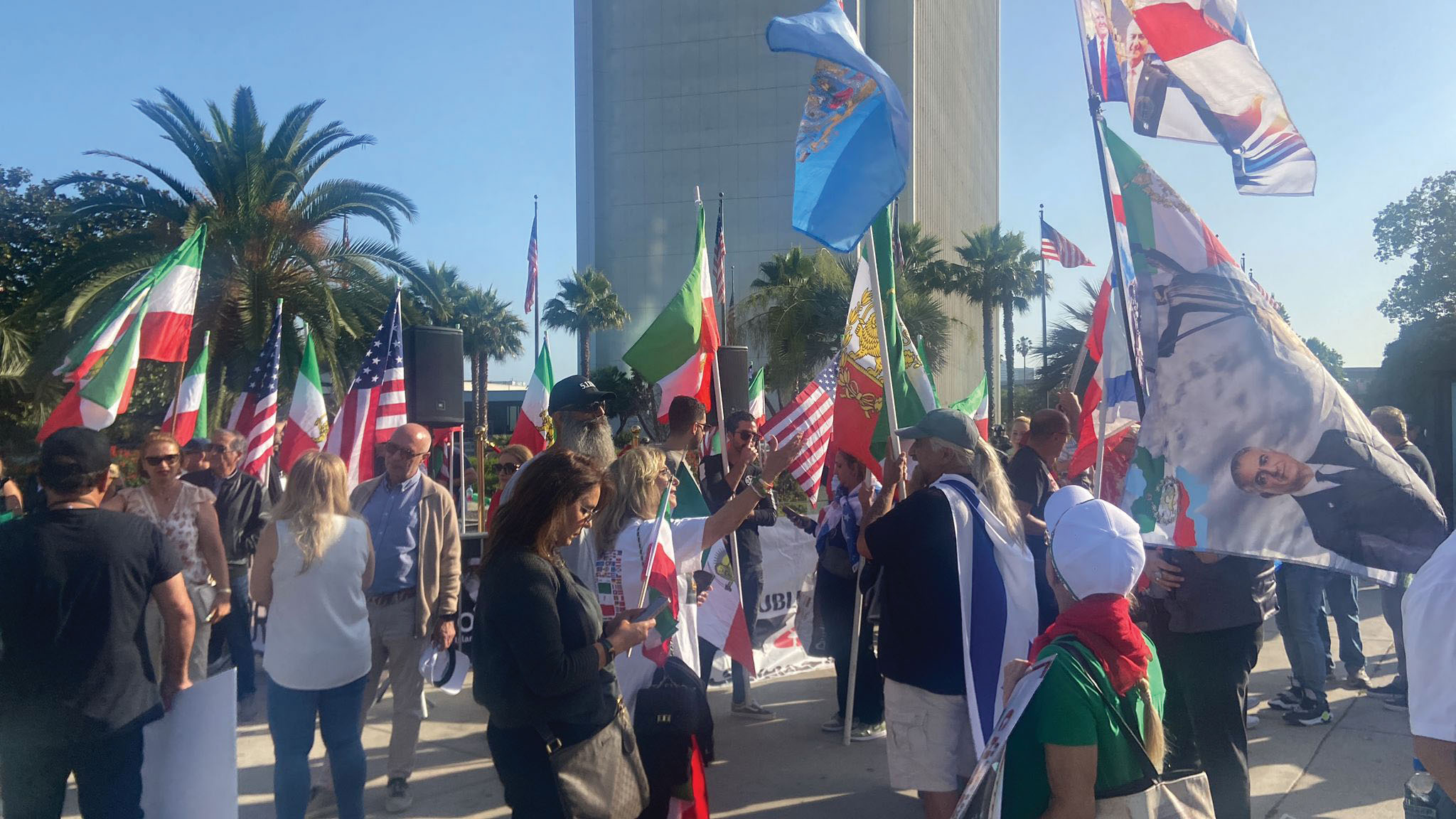
On Sunday afternoon, several dozen people stood outside the Federal Building in Westwood, waving the flags of Iran, the United States and Israel, holding signs calling for the end of the Islamic Republic. “Monarchy for Iran!” one man shouted into a megaphone, echoed by the crowd chanting in Persian. “The Islamic Republic is a terrorist regime!” declared a young woman in black T-shirt and denim shorts, wearing an image of the late Shah with the message “I Stand With King Reza Pahlavi.” The crowd repeated her words. They were in a neighborhood nicknamed “Tehrangeles” due to its large Iranian population. Cars passing along Wilshire Boulevard honked in solidarity.
They were there a couple of weeks ago as well, and they promised to return in the following weeks. Some were born in Iran and immigrated to the U.S. years ago. Others were born here to Iranian parents. Almost all were raised in Muslim families, but when asked if they identified as Muslim, they were quick to clarify: not really. Though born into Islam, they said they didn’t truly see themselves as Muslim.
If Prime Minister Benjamin Netanyahu had stopped by, he likely would have been moved by the outpouring of support and perhaps inspired to return to Israel and resume what these demonstrators believe was a prematurely halted war.
“What newspaper are you from?” asked one man, wearing a T-shirt with the image of exiled Prince Reza Cyrus Ali Pahlavi. “Please write, ‘Bibi: Finish the job – we’re behind you!’”
The young woman in shorts is Niusha Shirazi, who left Iran 13 years ago. “You know, since we went to school in Iran, we were taught to say ‘Death to Israel’ and ‘Death to America,’ but we didn’t have a problem with Israel or Jews — we didn’t even know what we are saying,” she said. “After Oct. 7 we stood by Israel and we want the world to know that we are not against Israel. After I moved to the U.S., I got to know many Jews, and I made good friends, especially since Oct. 7. Shirazi said she still has family and friends in Iran who were anxious about the war, but didn’t want it to end. “They fully support Israel. Ironically, they trust Israel more than they trust their own government and want to see the regime fall.” She believes that 95% of Iranians in Iran wish to see the Islamic Republic overthrown. “The remaining 5% – They’re tied to the regime and benefit from it.”
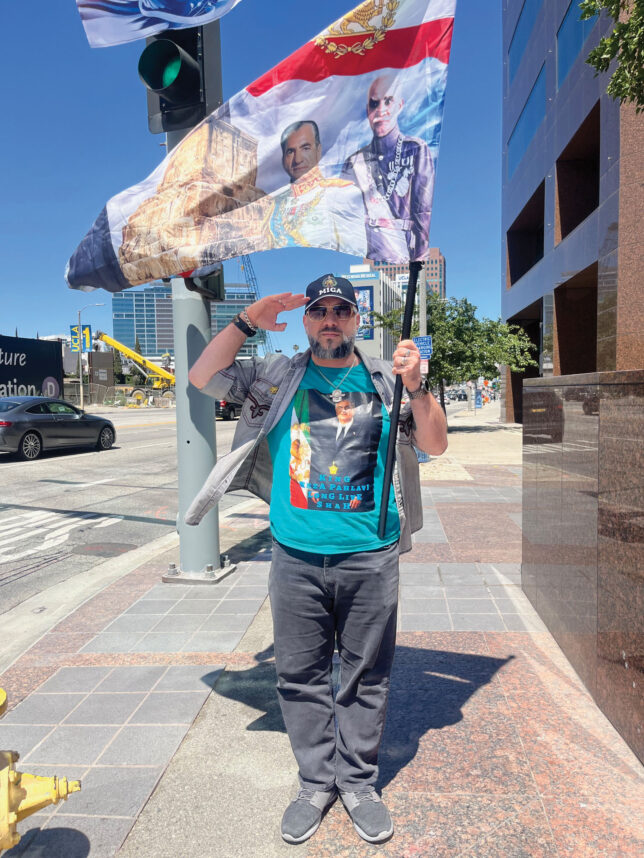
Farzan Seyedi, born in Miami to exiled Iranian parents, held two giant flags mounted on one long pole. One bore a photo of the former Shah with a combined print of the Iranian and Israeli flags. A fervent supporter of the monarchy, Sayedi hopes to see the Pahlavi dynasty restored in Iran. His Instagram bio reads: “Soldier of His Majesty Reza Shah II.” His parents immigrated to the U.S. before the revolution, but after five years, they returned for a family visit – only to get stuck when the Iran-Iraq War erupted. Their passports were confiscated, and they were forced to stay in Iran for five years.
As soon as they could, they boarded a flight back to the U.S. “My family always supported the Pahlavi monarchy,” Seyedi said. “We feel the world betrayed the Shah of Iran. For the past 10 years, I’ve supported the Iranian and Israeli communities and delivered a message of unity. We have a common enemy: the Islamic Republic.”
Seyedi describes himself as part Muslim, part Jewish, Christian and Zoroastrian. He says Iranians never had a problem with Israel — quite the opposite. “The real trouble began in 1979 with the Islamic Revolution. Under the Shah, the Middle East was stable. Iran was a key ally of both Israel and the U.S. But Carter’s betrayal — and the influence of outlets like the BBC and CNN — helped usher in this regime.”
Since the 2022 death of Mahsa Amini, he said, the Islamic Revolutionary Guard Corps (IRGC) has tried to co-opt the protest movement, partnering with the ultra-rich Zanjani family to appear as reformers. “In reality, the IRGC is the world’s largest terror organization — backing Hamas, ISIS, Hezbollah and the Taliban. They’ve been fueling global terrorism for over 40 years. Since they took over, the world’s been in decline.”
His family remains in contact with relatives and friends in Tehran, who told them how the IDF issued evacuation warnings before airstrikes. “Israel is targeting regime heads with precision. The IRGC, on the other hand, deliberately attacks Israeli civilian areas. People need to understand — the Islamic Republic is a foreign regime. We never saw them as Iranians. They’re a terrorist group that’s been threatening to wipe Israel off the map for 46 years.”
Seyedi said that while Iranians appreciate Israel’s help in toppling the regime, they don’t want foreign intervention in choosing a new government. “I support a Pahlavi monarchy, but the Iranian people will decide. The important thing is the Islamic regime must be erased and brought to justice. We want the U.S. to stop throwing them lifelines. Stop funding them. Stop backing them. This regime is pure terror.”
Farshid, who requested not to share his full name, had never met Jews until he moved to the U.S. He was born in 1989 — a decade after the revolution and the mass exodus of Jews from Iran. “Growing up in Iran, they brainwash you. But once you step outside that mentality and gain perspective, you realize the truth. Most Iranians today view Israelis and Jews as our closest allies.”
Farshid lived in Iran until age 18, then moved to the U.S. As a child, he heard stories painting Israel as evil. “They projected their own traits onto others. I didn’t know any Jews — most had already left. But Iranians today don’t buy the lies about Israel. They know Israelis are our friends, more than any neighboring country.”
Most of Farshid’s friends, both in Iran and the U.S., support the war and want it to continue. “They understand that Israel isn’t fighting the Iranian people — it’s fighting the regime. And they’re grateful for that.”
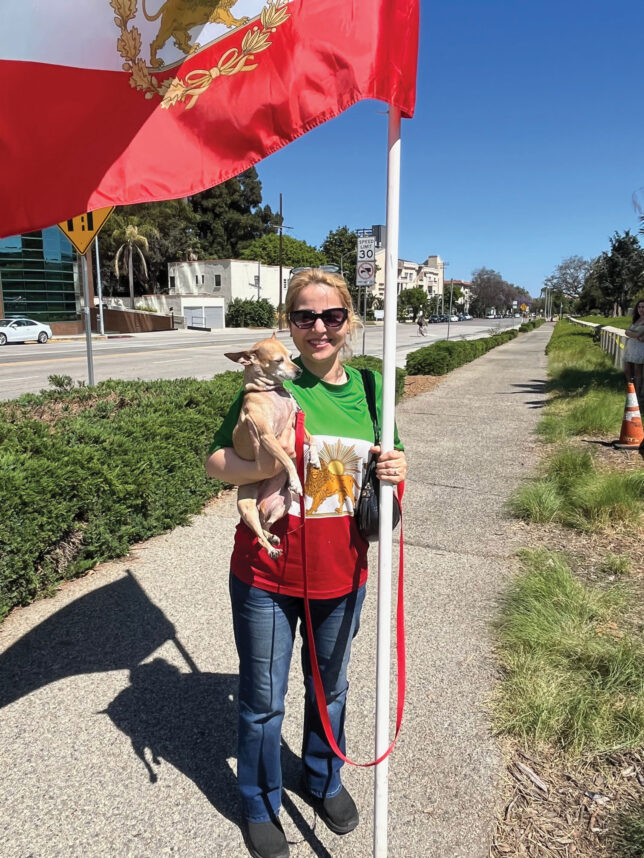
Manaz Dousti, who worked in Iranian radio and TV, moved to the U.S. 10 years ago. She was at the rally with her dog, Lucy. “In Iran, I’d never dare walk a dog in public,” she said. “People in Iran have dogs but it’s forbidden and based on Islam they are not clean. My country issued a law — if you bring your dog to the street they can arrest you. I’ve heard they even capture and kill dogs and sell the meat to China. These people are sick — not human.”
Dousti lives in Orange County. A month ago, a friend of hers traveled to Iran and was arrested simply for allegedly supporting Israel. “She’s Muslim and not an activist like me. She never posted anything political. But in Iran, they can arrest, jail and rape you without reason — men and women.”
Dousti said her entire life under the regime was shaped by brainwashing: “They told us that Israel is Satan and Jews were evil and contact with them was forbidden. But I never believed it — and neither did my family. We had many Jewish, Armenian, and Bahá’í friends.”
After the ceasefire was declared, many of Dousti’s relatives in Iran were heartbroken. They’d hoped the war would finally topple the regime they had despised since Ayatollah Khomeini seized power. “As soon as the war stopped, the arrests and executions resumed. If the regime stays, they’ll continue their nuclear program. They still want to destroy Israel — they’re fanatics,” Dousti said.
Dousti’s 90-year-old father remains trapped in Iran. Her mother passed away, and as much as she wants to return to be with him, she knows it’s no longer possible — not with her activism against the regime.
Mahsa Amini, a 22-year-old woman, became a symbol of resistance in Iran after she was arrested by the country’s “morality police” in Tehran in September 2022 for allegedly not wearing her hijab properly. Shortly after her arrest, she collapsed into a coma and died two days later. Her family and eyewitnesses reported that she had been severely beaten while in custody and suffered serious head and body injuries.
Her death sparked a massive wave of protests inside Iran and across the world under the slogan “Woman, Life, Freedom” (“Zan, Zendegi, Azadi” in Persian). The protests were met with violent crackdowns by Iranian security forces, but they marked a turning point in public resistance to the regime’s oppressive policies and religious laws. The hashtag #MahsaAmini went viral, igniting a global movement. In October 2023, Amini and the protest movement were awarded the Sakharov Prize for Freedom of Thought by the European Parliament.
Following her death, tens of thousands of Iranians — many of them students and young women — flooded the streets in an unprecedented uprising. Over 20,000 protesters were arrested, many held without trial, tortured, placed in solitary confinement, and coerced into false confessions. Students were a prime target — some were expelled from universities, others imprisoned and many reported abuse during detention. More than 500 protesters were killed, including dozens of children and teens. Several were publicly executed after sham trials, among them 23-year-old Mohsen Shekari and Majidreza Rahnavard, executed just days apart. Dozens more remain on death row.
At Sharif University, students were beaten, arrested and trapped inside the campus. Surveillance and policing intensified. Some students were forcibly drafted. Many activists either fled Iran or went underground. Families of victims faced threats, arrests and surveillance — even during memorial services. A simple social media post or visiting a loved one’s grave could result in another arrest.
This is why so many Iranians — desperate to see the Islamic Republic fall — realized they couldn’t do it alone. The price of protest was simply too high, not just for them but for their families. The war with Israel presented, to many, a crossroads — a rare opportunity to bring down the regime. Even if it meant damage to their homes or financial hardship, many were willing to pay the price if it meant a future without fear.
Of course, one could assume that anyone attending an anti-regime rally in Westwood also supports Israel and the continuation of the war. For them, every bomb that falls in Iran brings the regime closer to collapse — a regime they hold responsible for imprisoning, torturing and killing innocent civilians, many of whom committed no crime beyond protesting or walking outside without a hijab.
But how do others feel about the war — especially younger Iranians who don’t remember the Shah or the pre-revolution era their elders long for?
Not far from the rally, at Jordan Market on Westwood Boulevard, Yasmin Rostami was browsing the aisles of Persian spices. Rostami, 33, was born in Los Angeles to Iranian Muslim parents. She has never visited Iran but, like most LA-born children of Iranian immigrants, speaks fluent Persian. “We have family and friends in Tehran and are constantly in touch,” she said. “Of course we’re worried — but we’re also full of hope. Everyone we talk to in Iran wanted the war to continue. I don’t get Trump — why did he stop the war now? This was the first time Iranians had a real chance at a better future.”
Rostami has Jewish friends — both Iranian and American. “I went to Beverly Hills High School, and lots of Jewish kids went there. I never had any issues with them. What cracks me up is seeing people protesting for Iran and against Israel. They claim Israel is bombing innocent civilians and needs to stop the war. I don’t believe any of them have ever spoken to an actual Iranian. They have no idea what they’re talking about. We Iranians thank Israel on behalf of our families and friends that are still there.”
Mojgan Karimi, 23, a student at UCLA — where several anti-Israel protests have taken place — said she hasn’t seen any Muslim or Jewish Iranians participating in them. “People think Iranian Muslims automatically hate Israel. I’ve talked to students who joined the protests and even got paid for it. Their ignorance about the Middle East was shocking. I honestly don’t understand how they got into college.”
Karimi’s parents immigrated to the U.S. over 30 years ago with her two older brothers. In Iran, they suffered years of persecution. Her father was once arrested on suspicion of supporting Israel, tortured, and released only after the family paid a bribe. “He never had any connection to Israel,” Karimi says. “My parents believe a business rival made it up to shut down his store. His story isn’t unique. So many people are arrested, tortured, and raped over mere suspicions. Most Iranians know someone — a neighbor, friend, or relative — who’s been arrested. That’s why nearly everyone wants this regime gone. It’s feared and hated — no one knows when it’ll be their turn.”
It’s estimated that 600,000 to 700,000 Iranians live in Southern California — the largest concentration outside Iran. While most are Muslims, there are barely any Iranian mosques in Los Angeles — but dozens of Iranian synagogues. Why? Many Muslim immigrants from Iran are reform-minded or secular.
Zahra works at a Bank of America branch in Encino. She agreed to be interviewed, but “Without my full name or photo. I still have family in Iran — it’s dangerous.” Zahra moved to Los Angeles seven years ago. “I was only visiting at first, but my brother, who’d lived here for years, convinced me to stay and helped me get a green card.”
She identifies as Zoroastrian and said Islam was forced on Iranians. “Persians weren’t originally Muslim. Before Islam, the dominant religion was Zoroastrianism — the official religion of the Sassanid Empire. In the seventh century, Arab Muslim armies invaded, and Islam spread by force. The Islamization of Persia took centuries. Many remained Zoroastrians for generations. Later, under the Abbasid Empire, Islam became dominant. In the 16th century, Shi’a Islam was also forced on us.”
Zahra, 34, recalled that as a student in school, she was required to indicate whether she was Sunni or Shi’a on enrollment forms. “I didn’t understand why it mattered. We were lucky to be classified as Muslim. Bahá’ís weren’t so lucky. Teachers treated them with disdain. When we all applied to universities, Bahá’ís weren’t even allowed to register. I’ve heard of kids as young as 10 or 12 being arrested and imprisoned — probably on false charges.”
The Islamic Republic of Iran does not recognize the Bahá’í faith as a legitimate religion. While Judaism, Christianity and Zoroastrianism are officially recognized religious minorities, the Bahá’í faith is considered heretical, and its followers are viewed as apostates.
Only after arriving in Los Angeles did Zahra meet Jewish people. “There were none in my school or neighborhood. I think most left Iran long ago. At school, they taught us to chant “Death to Israel,” “Death to America” and we were required to step on the flags of Israel and the U.S. as we entered. I didn’t understand why. I asked my mother what to do — she told me to hop over the flags. One teacher noticed I wasn’t stepping on them and summoned my mom to school. I was reprimanded.”
Though her parents never raised her to hate Jews or Israel, Zahra admitted that the propaganda affected her. “I was a little afraid — after all, my whole life I’d heard that Jews were evil and wanted to harm us. But when I came to LA, I met Jews and saw how kind and warm they are. I met an Iranian Jewish woman who always invites me to Passover and Rosh Hashanah. We’ve become close friends.”
Since the war between Iran and Israel began, Zahra has stayed in daily contact with her widowed mother, uncles, and friends still living in Tehran. “Thankfully, their homes weren’t bombed — but the war brought major hardships. There’s not even enough bread or fuel. It sounds crazy, but yes — there’s a fuel shortage in Iran. And the government doesn’t care. If your house is destroyed — it’s your problem. If you can’t eat — too bad.”
So how do they feel about the war ending?
“Not happy at all. They were thrilled when the war broke out. Please write this — the Iranian people love Israel. I hope the war continues. It’s the only chance we have for a better future in Iran. My dream is to visit Israel one day.”






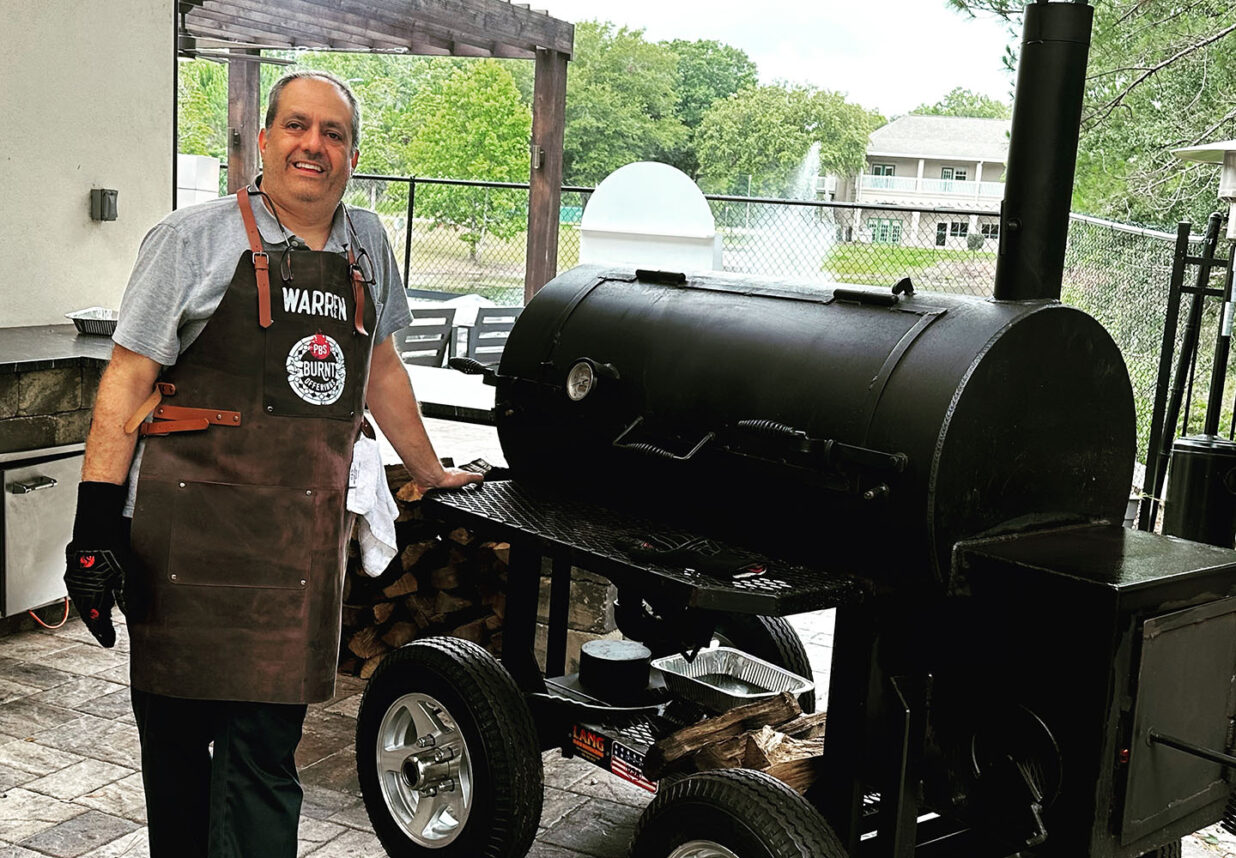
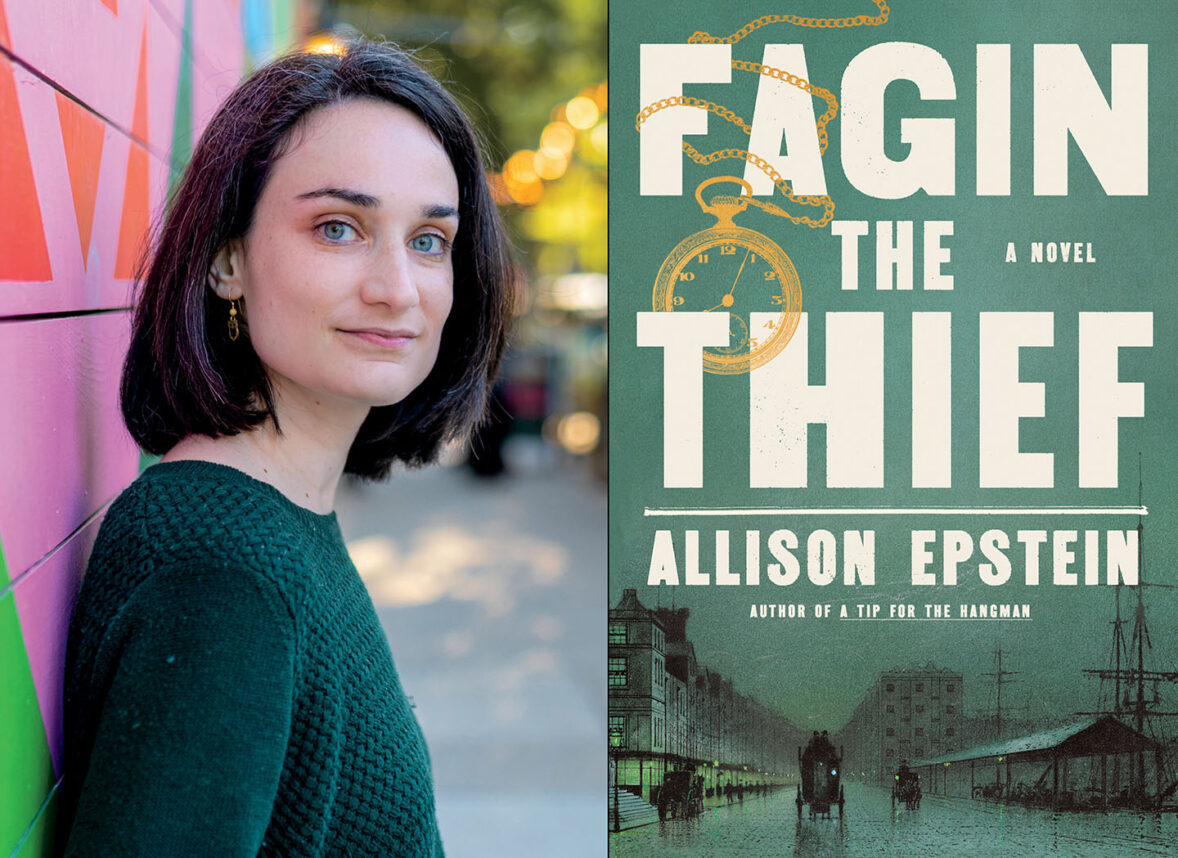
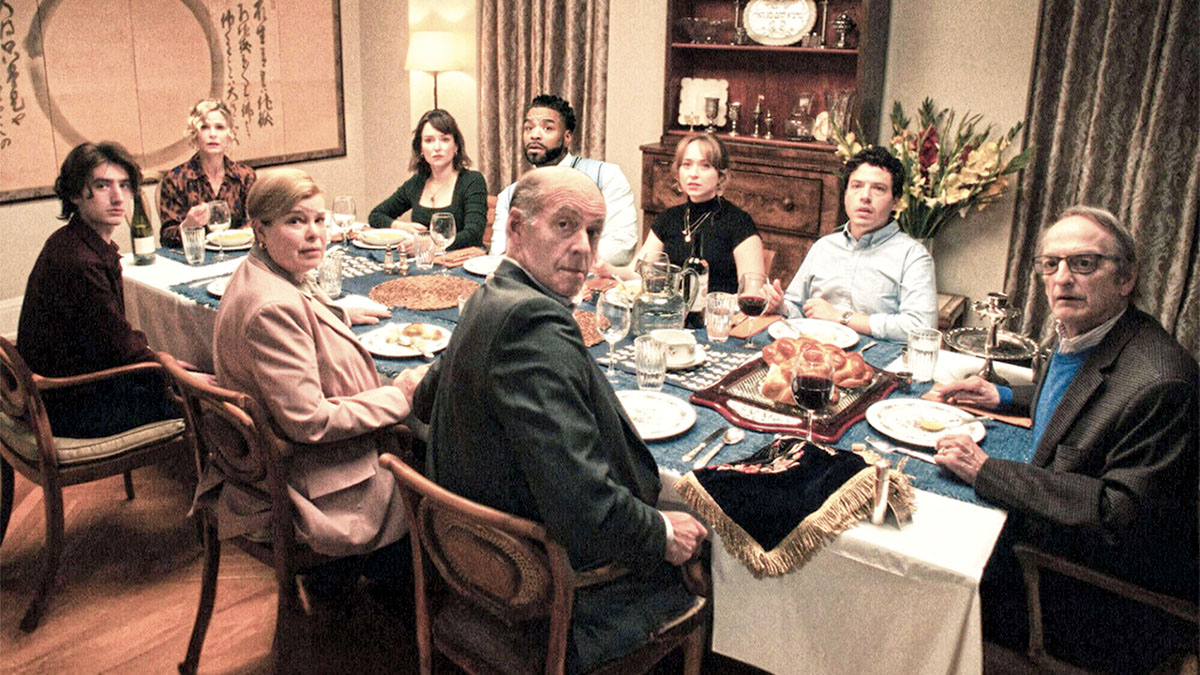
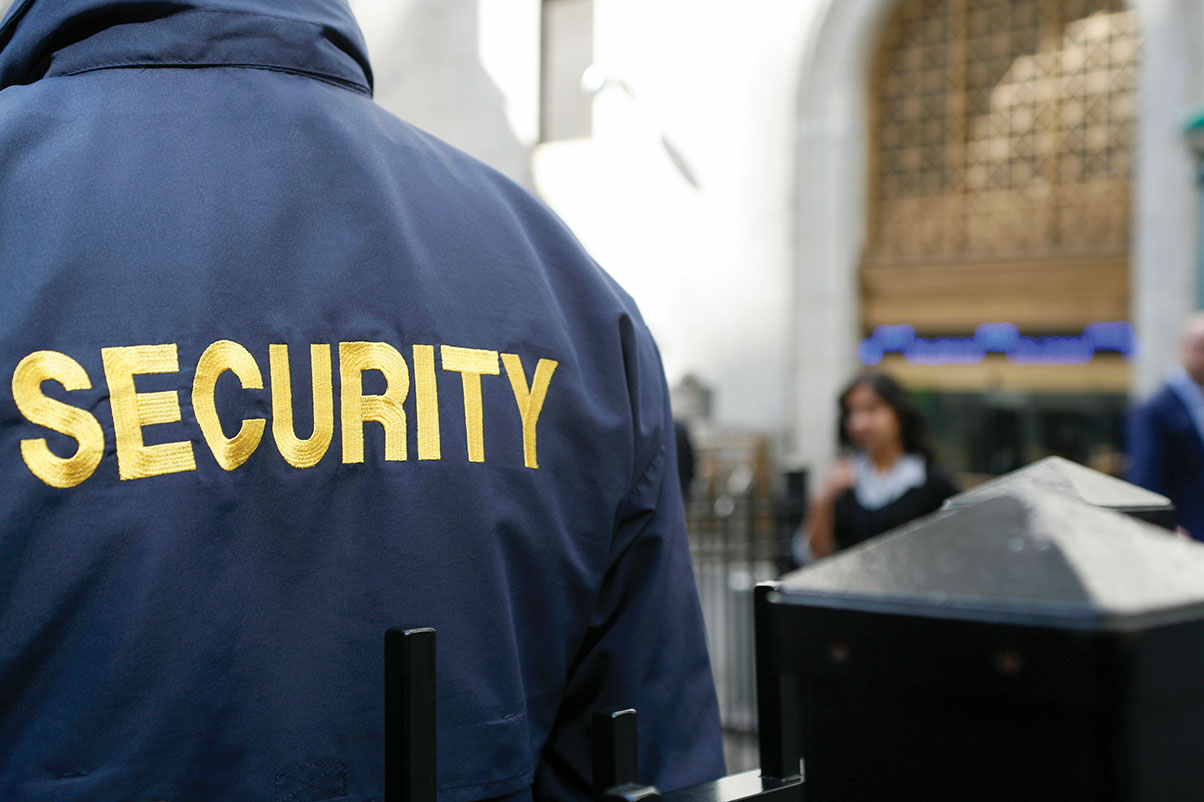

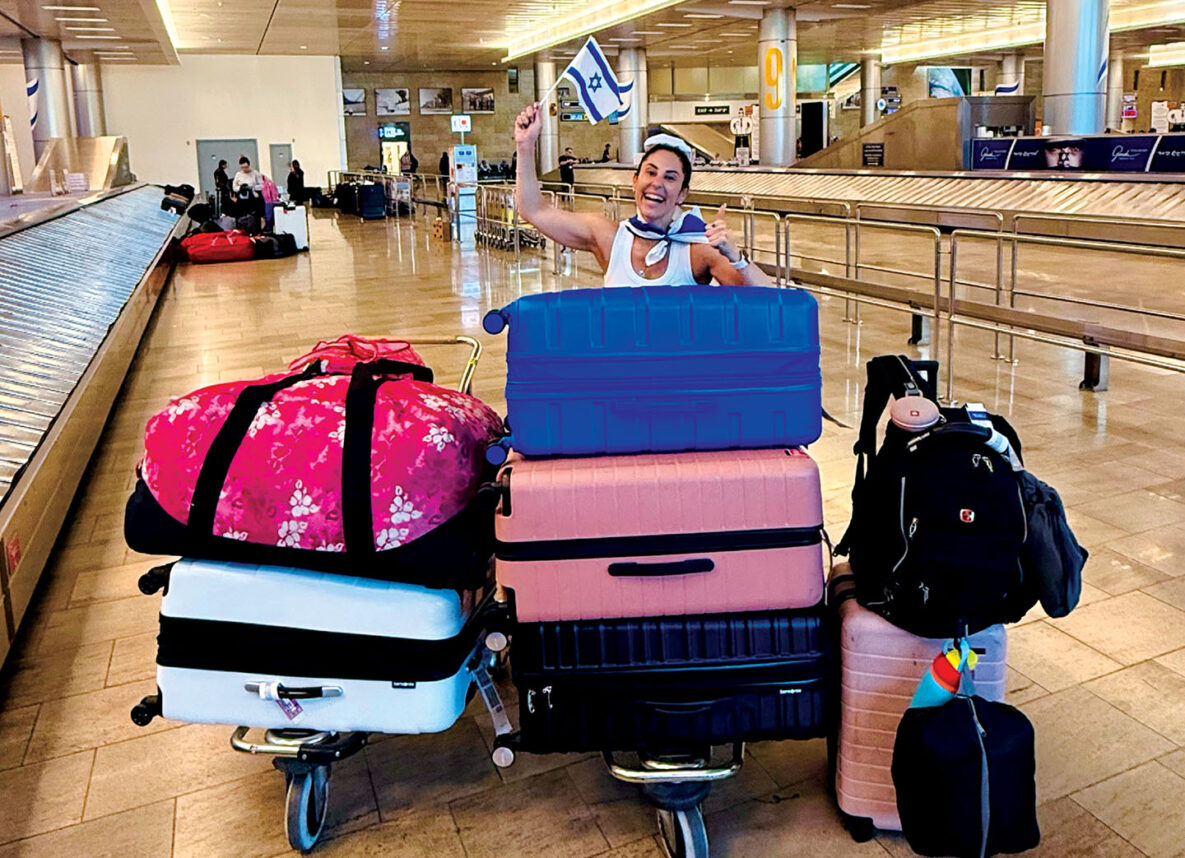


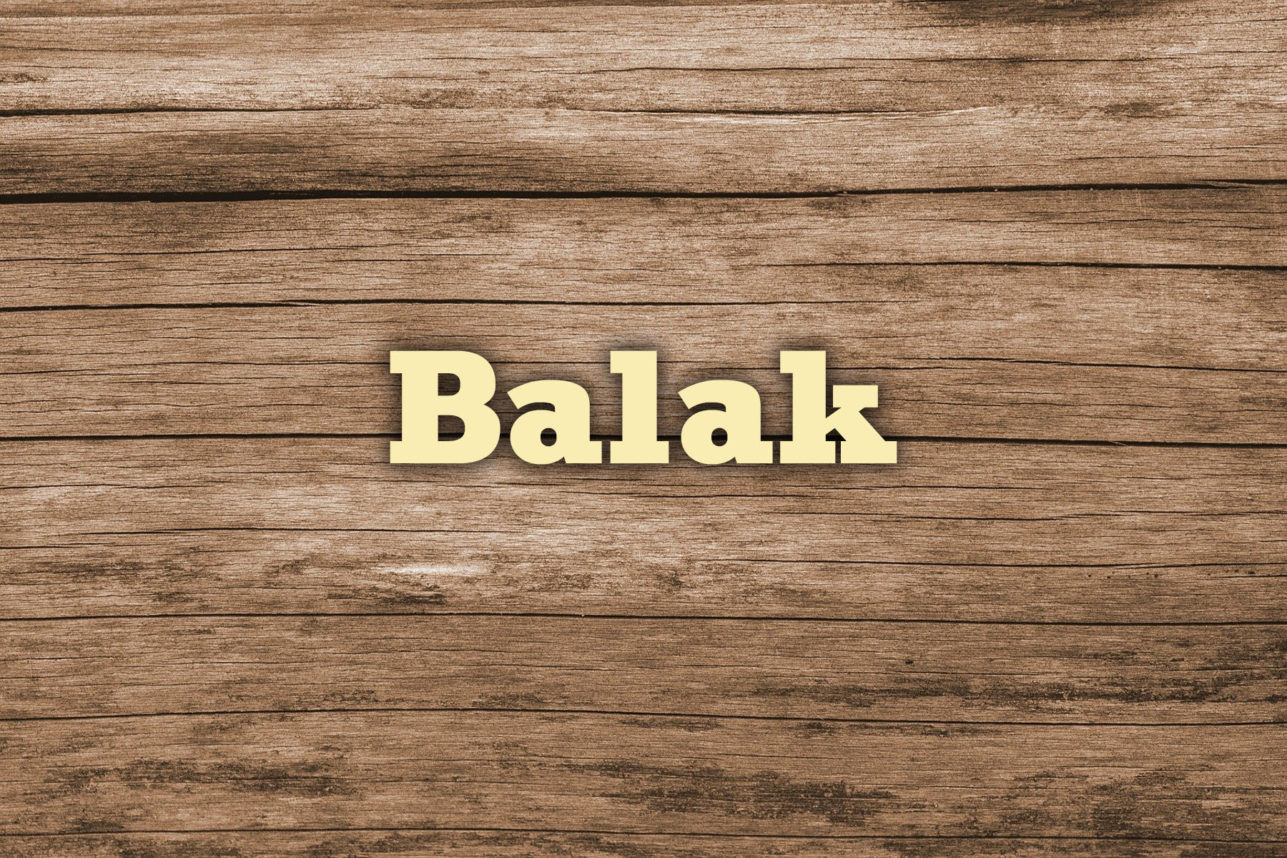
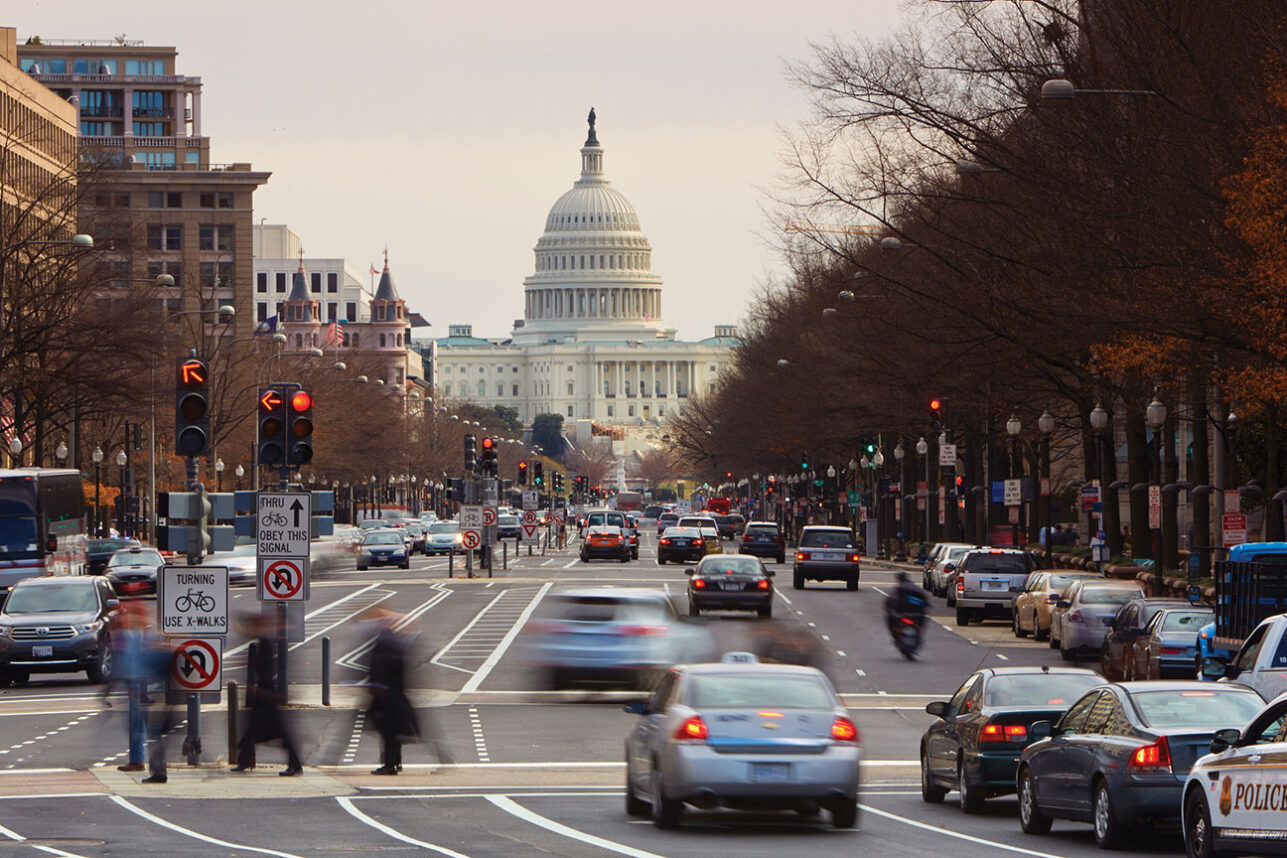
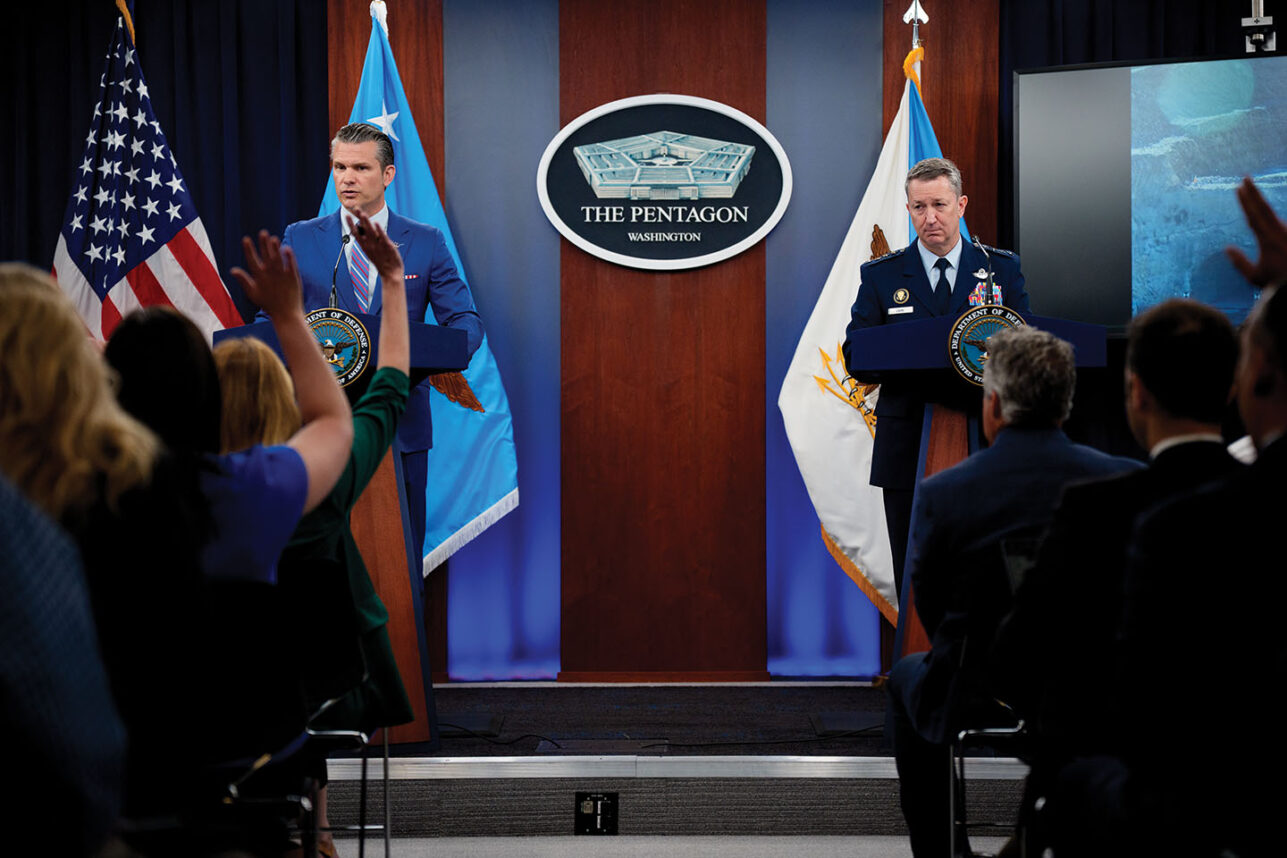
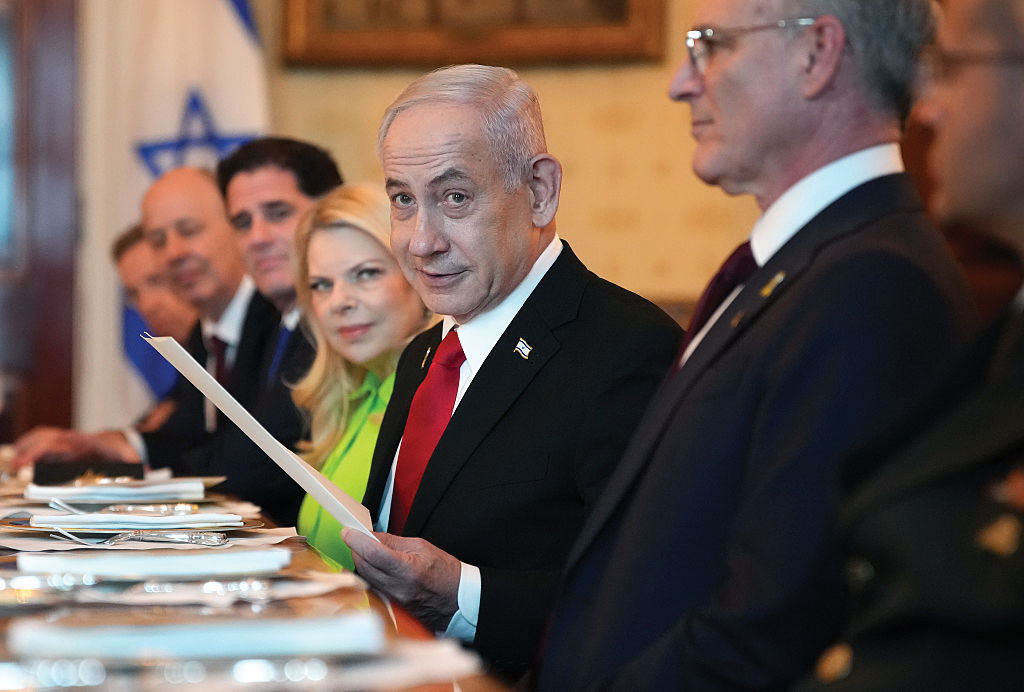

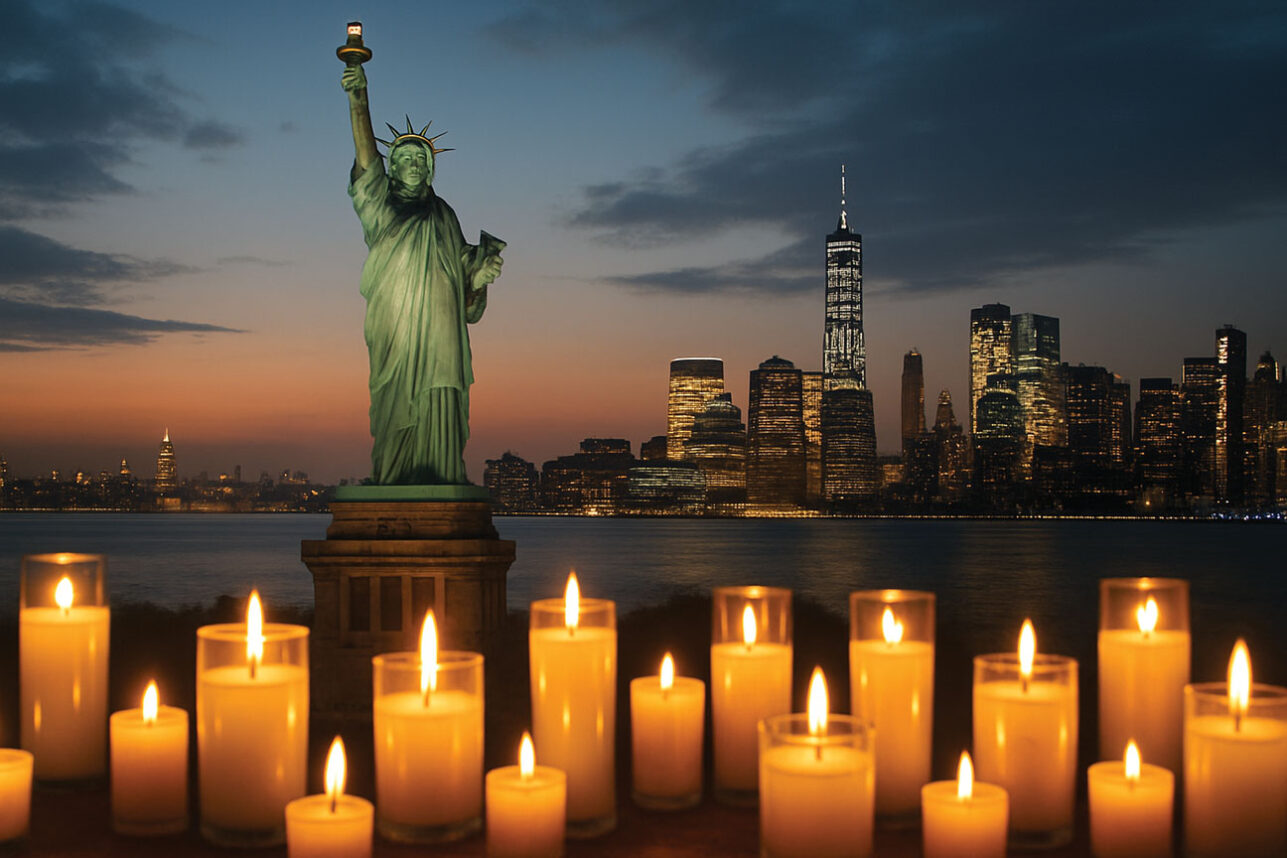
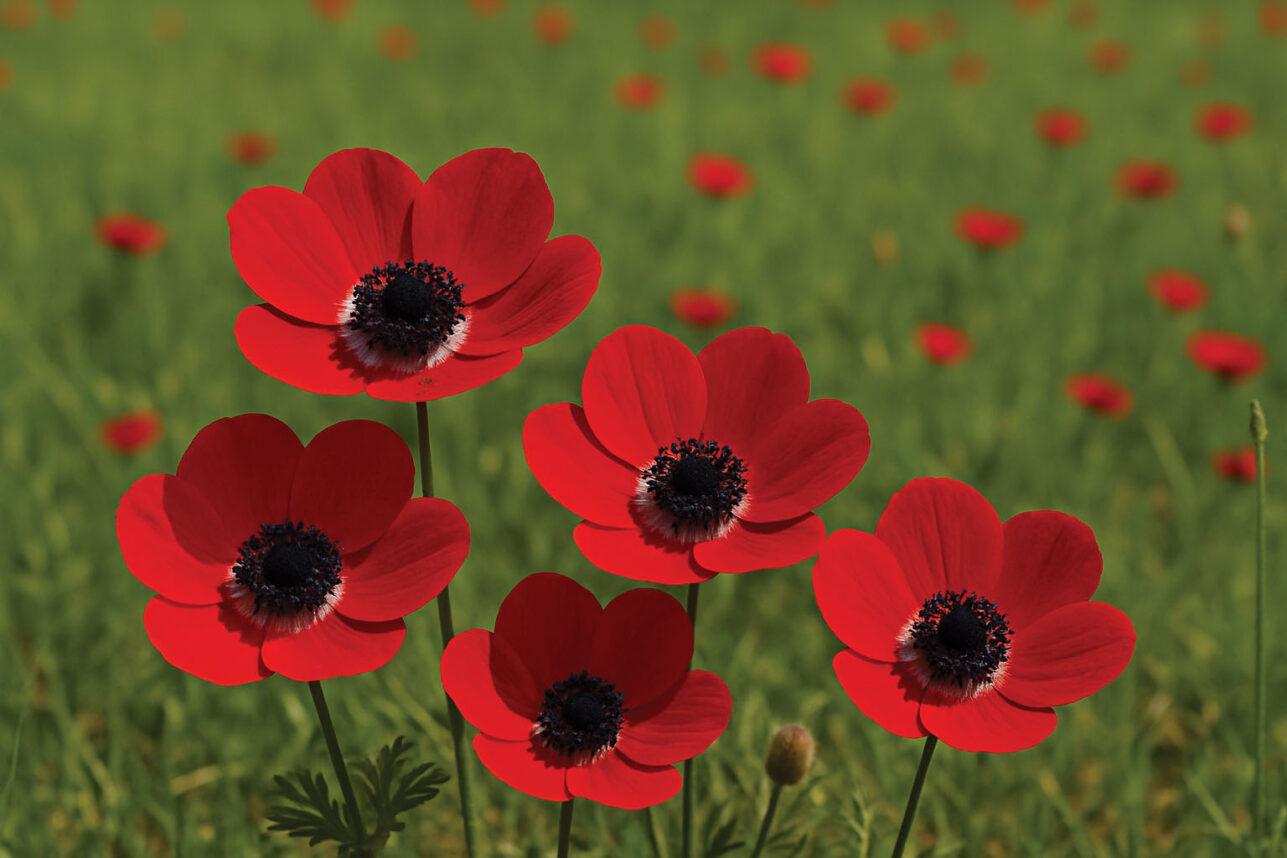
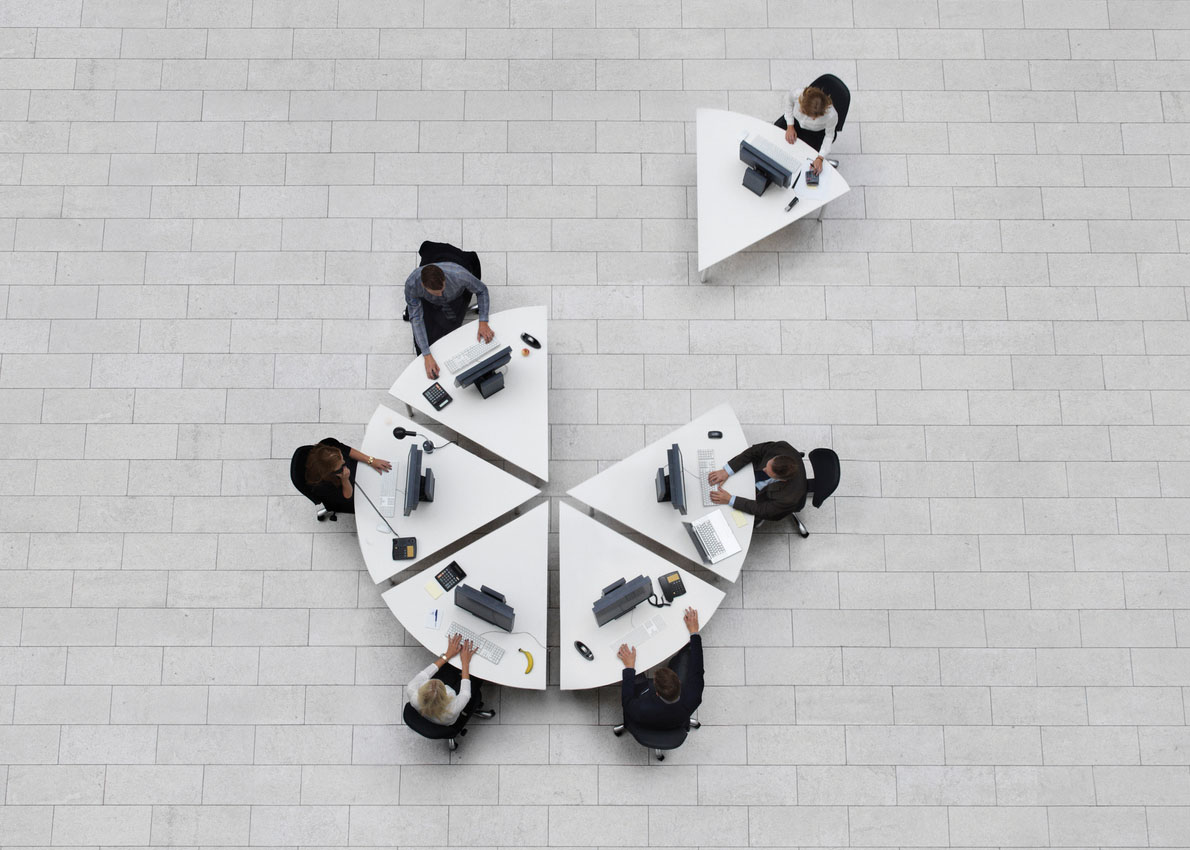
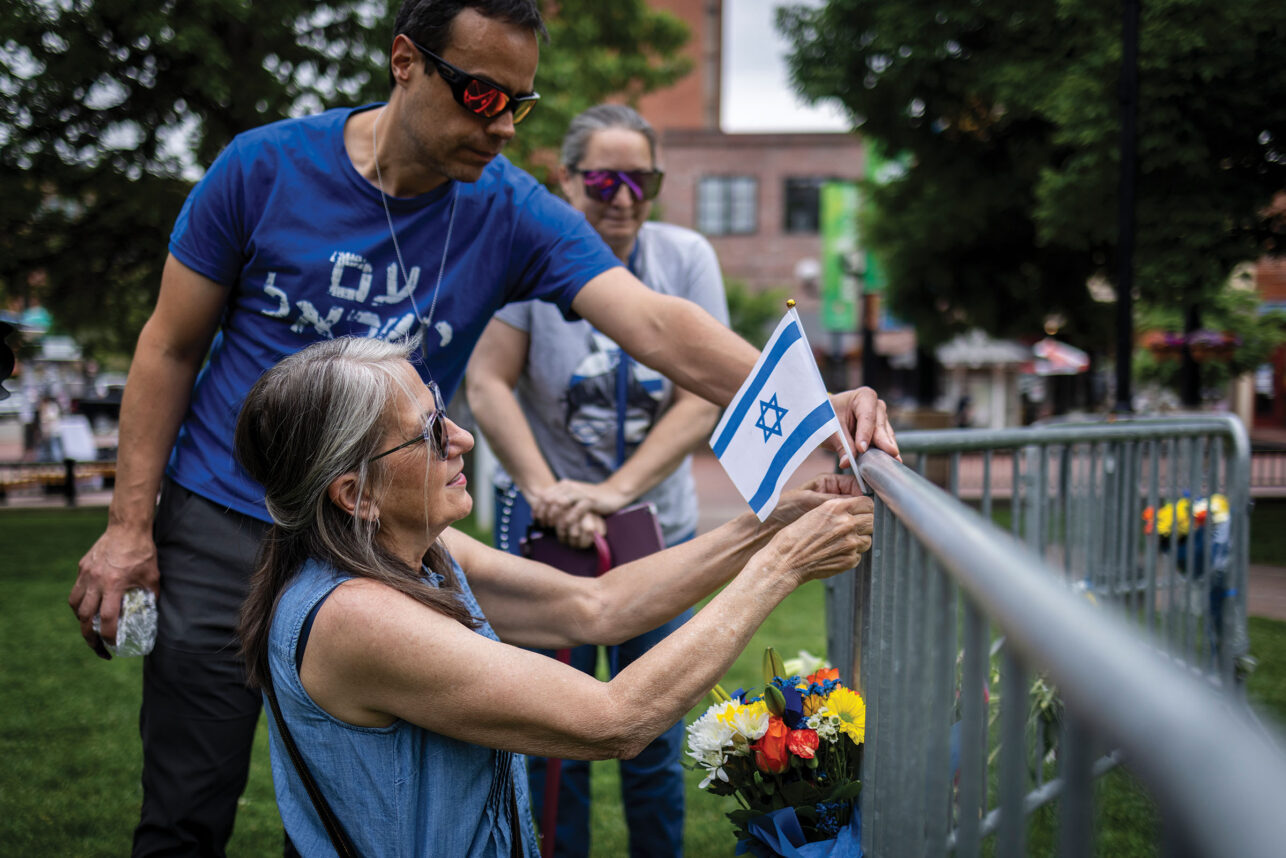
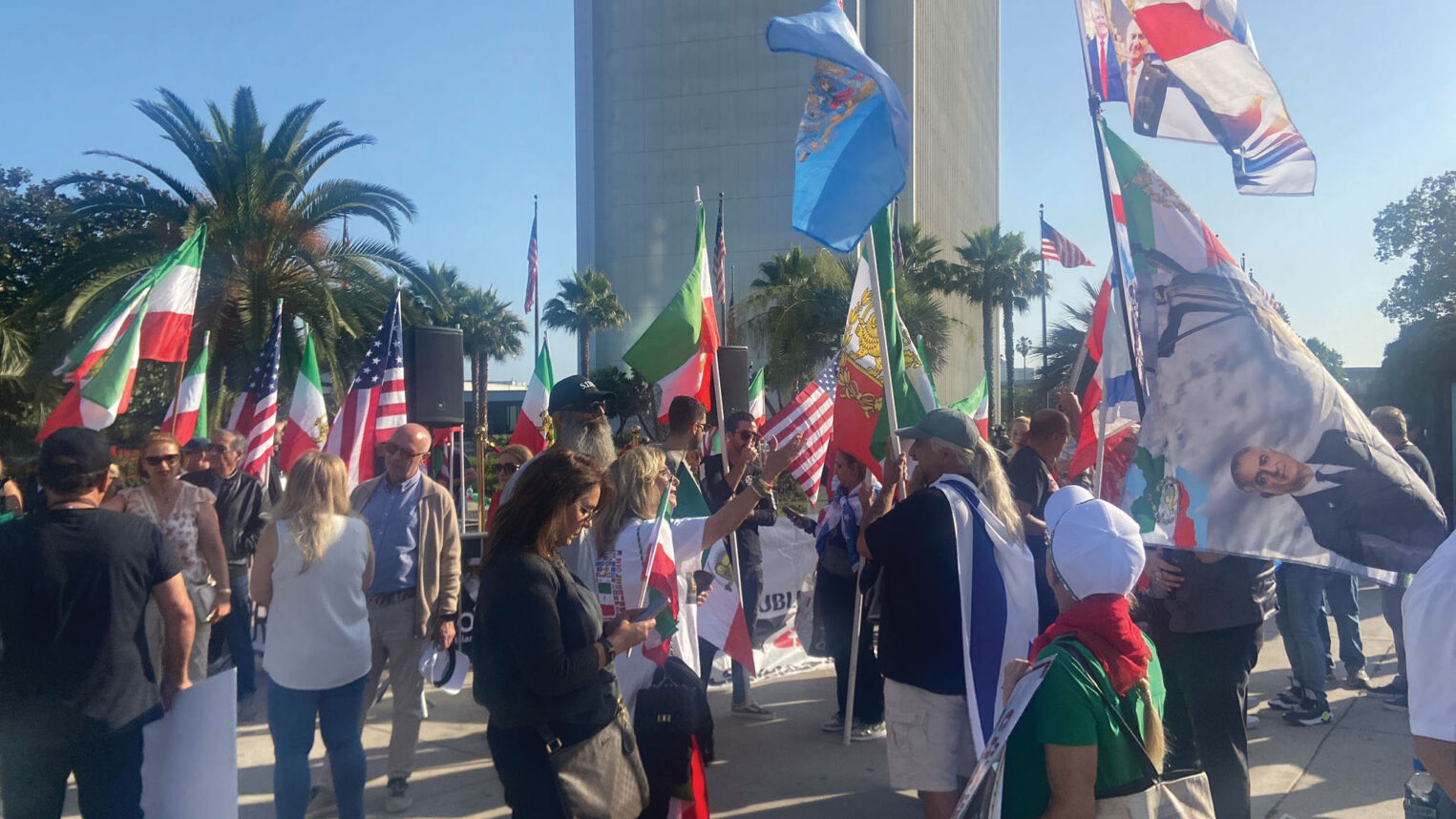

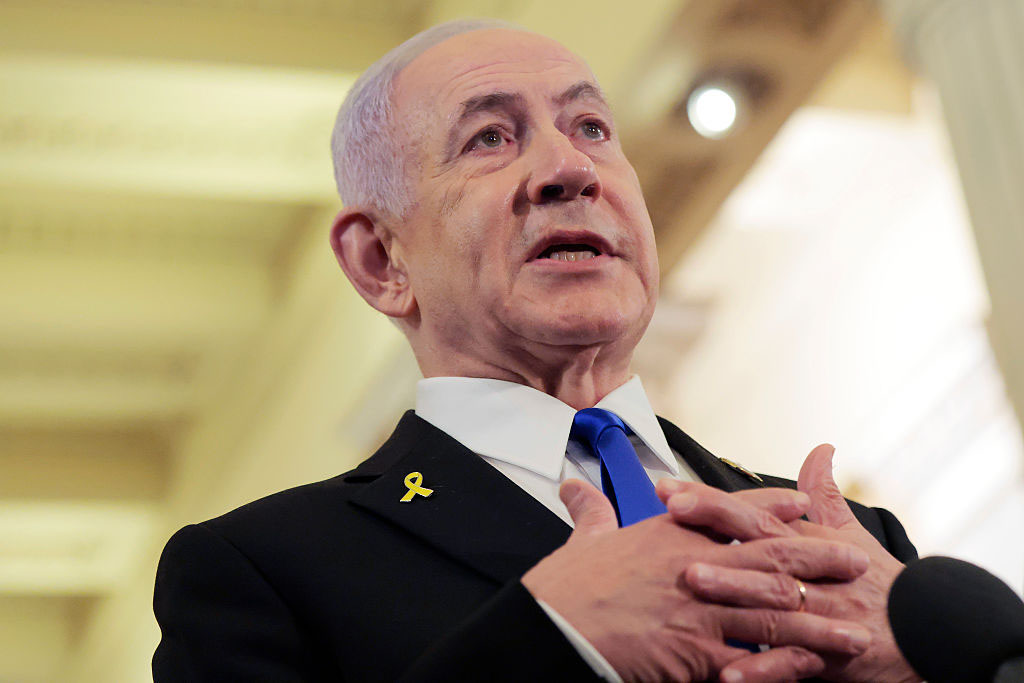

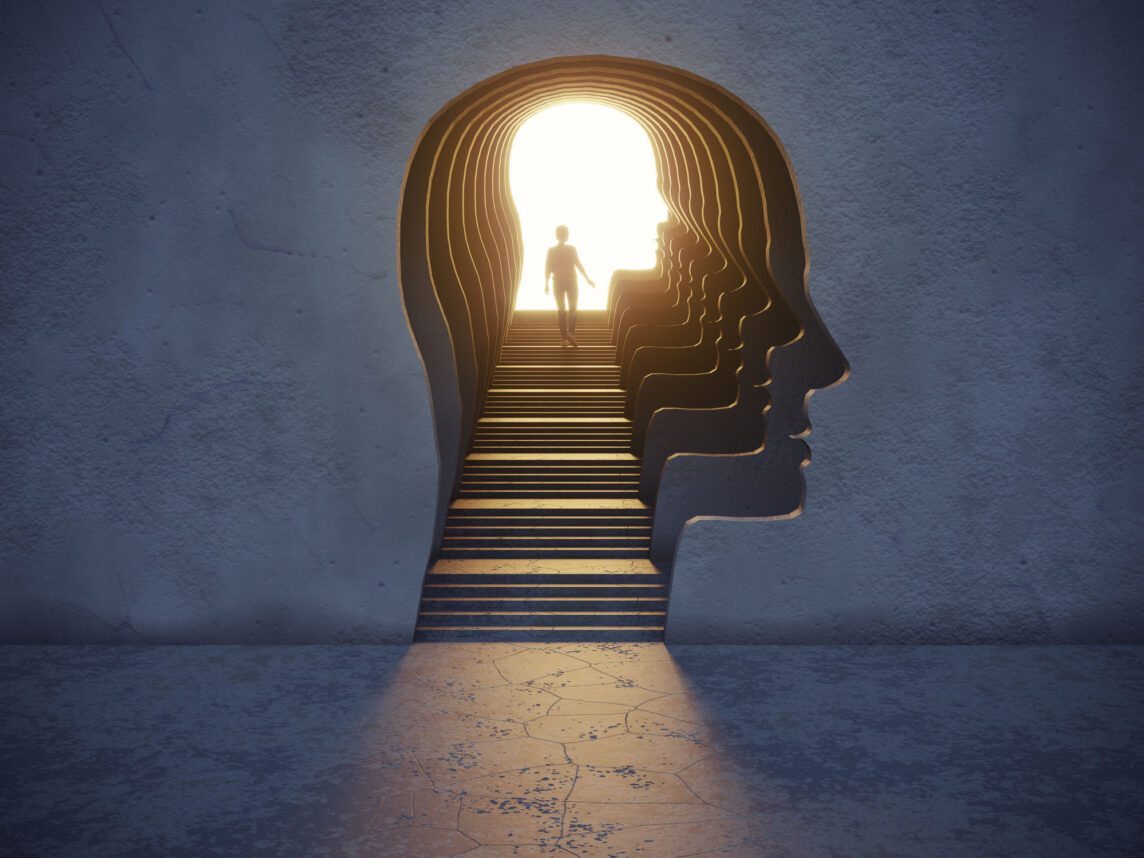




 More news and opinions than at a Shabbat dinner, right in your inbox.
More news and opinions than at a Shabbat dinner, right in your inbox.